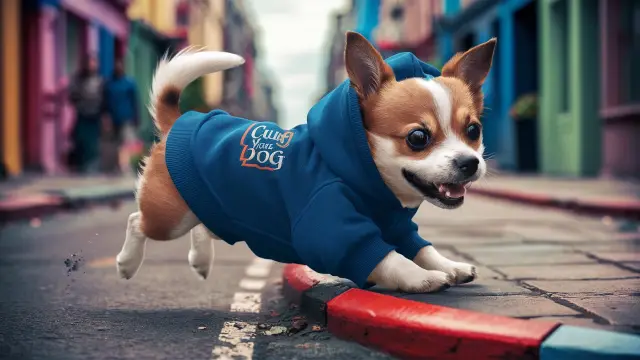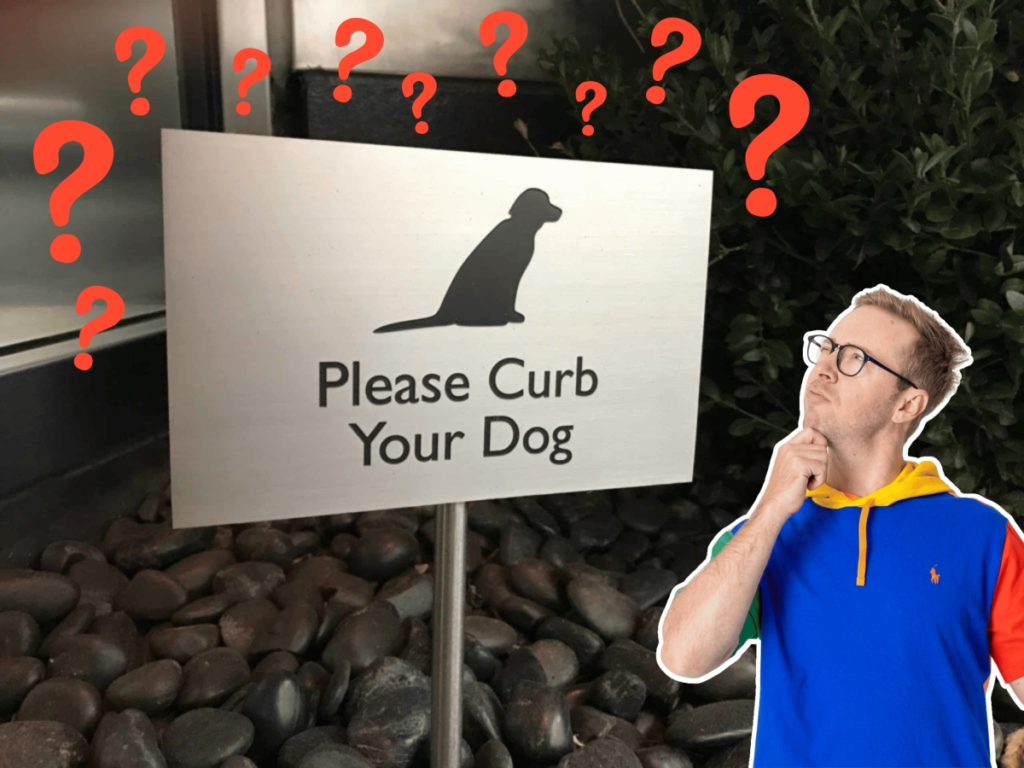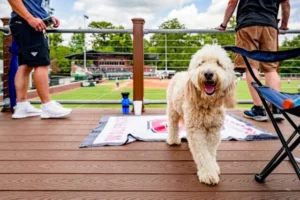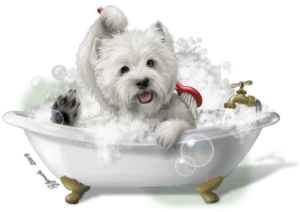What Does ‘Curb Your Dog’ Mean?

What Does ‘Curb Your Dog’ Mean?:- If you’ve ever strolled through a city, particularly New York, you’ve likely seen signs urging people to “curb your dog.” While the phrase might seem puzzling to newcomers or those unfamiliar with city living, it holds significant importance in urban environments where large numbers of people, pets, and public spaces interact. Let’s delve deeper into the origins of the phrase, its modern interpretation, and the reasons why responsible dog owners should always adhere to the practice of curbing their dogs.

The Origin of the Phrase
The phrase “Curb Your Dog” dates back to the 1930s in New York City. It was born out of necessity when signs started appearing around the city in an attempt to control the growing problem of dog waste on sidewalks. Back then, the streets of New York were not only filled with pedestrians but also littered with waste from the horses that pulled carriages and delivered goods. Horse manure was a common sight on the roads, but the sidewalks and Central Park were supposed to remain clean.
However, dog owners were less concerned about where their pets relieved themselves. In response, city officials began placing signs to direct dog owners to have their pets relieve themselves in the street, near the curb. The idea was that dog waste would land on the edge of the road, where it could be more easily cleaned up or washed away.
Fast forward to 1978, and the infamous “pooper scooper law” (New York City Health Code 161.03) came into effect. This law required dog owners to pick up after their pets. It was a pivotal moment for cities everywhere, as it made dog waste cleanup a legal requirement. The “curb your dog” signs persisted, largely due to the fact that many apartment owners didn’t want dogs urinating on their flower beds or building facades. Dog urine can be damaging to plants, grass, and even concrete, leading to the continuation of these requests.

What Does “Curb Your Dog” Mean?
At its core, curbing your dog means ensuring your dog relieves itself in an appropriate location, usually at the edge of the street near the curb, and that the waste is picked up afterward. If you’ve come across signs telling you to “curb your dog” and you’re scratching your head wondering what to do, here’s a breakdown.
There are two prevailing interpretations of the term. Some dog owners interpret “curbing” as simply being responsible—ensuring that the dog is under control, doesn’t defecate in inappropriate places, and cleans up after it when it does. Others see curbing as a more literal command: leading the dog to the gutter at the edge of the street so that it can relieve itself there, away from sidewalks and private property.
In either case, the ultimate goal is the same: to prevent dogs from fouling public or private areas and to keep the streets and sidewalks clean for everyone to enjoy.
The Legal Implications of Curbing Your Dog
The specific requirements for curbing dogs can vary from state to state, and even between different cities or communities within a state. However, the general principle remains consistent: dog owners are responsible for controlling where their pets relieve themselves and for cleaning up any waste left behind.
In most places, there are strict laws about picking up after your dog. Many cities, particularly larger ones, have fines in place for those who fail to pick up dog waste. It’s common to see these laws enforced in parks, streets, and residential areas. Occasionally, certain areas—such as playgrounds or areas with delicate landscaping—may also have rules prohibiting dogs from relieving themselves altogether, even if owners clean up afterward. In these cases, fines can be substantial if you disregard the rule.
Some cities also enforce “no-dogs-on-grass” laws in specific parks or green spaces to protect plant life from dog urine, which can cause dead patches or harm delicate plants. In these instances, even if you’re diligent about picking up your dog’s poop, you could still face fines if your dog urinates in an off-limits area.
How to Properly Curb Your Dog?
For dog owners, understanding how to properly curb your dog is key to being a responsible member of your community. Here are a few tips on how to do it effectively:
1. Set a Routine:
Take your dog out for regular potty breaks, especially after meals or waking up, to minimize accidents. A set routine helps your dog understand when and where it’s appropriate to relieve itself.
2. Choose a Designated Potty Spot:
Select a specific area, preferably near the curb or in a place where waste can be easily managed. Consistently taking your dog to this spot helps train it to go in appropriate areas.
3. Use Leash Control:
Keeping your dog on a short leash while it searches for a potty spot helps you guide it to the right place. This is particularly useful in crowded urban environments.

4. Use Commands and Rewards:
Use a verbal command such as “go potty” to cue your dog to relieve itself. Afterward, reward it with praise or a small treat to reinforce the behavior.
5. Be Patient:
Accidents happen, especially with puppies or newly adopted dogs. If your dog has an accident, don’t punish it. Instead, gently redirect it to the proper spot and reward it when it succeeds.
Why Is Picking Up After Your Dog So Important?
Picking up after your dog is more than just a courtesy to your neighbors—it’s a legal and environmental responsibility. In most cities, dog waste is considered a public health hazard due to the harmful bacteria and parasites it can contain, including Giardia, E. coli, and roundworms. Even if your dog appears healthy, its waste could harbor pathogens that can infect other pets or people, particularly children who play in grassy areas.
Moreover, dog waste left on the streets can be washed into storm drains by rain, ultimately polluting rivers, lakes, and other water sources. In urban environments, where dogs are densely populated, the environmental impact of waste can quickly add up. It’s estimated that urban ecosystems can only naturally sustain about two dogs per square mile, yet cities often have far more than this. As a result, dog waste poses a significant risk to the local environment if not properly managed.
Finally, failing to pick up dog waste can lead to hefty fines, damage to community spaces, and conflict with your neighbors. By curbing your dog and cleaning up after it, you’re doing your part to keep your community clean, healthy, and harmonious.
Conclusion
The phrase “curb your dog” may seem old-fashioned, but its message is as relevant as ever in today’s urban environments. Being a responsible dog owner means not only caring for your pet but also ensuring that your dog’s presence doesn’t negatively impact the people and places around you. By understanding the laws, setting a routine, and always cleaning up after your dog, you help keep shared spaces clean, safe, and enjoyable for everyone.
Also Read:-




